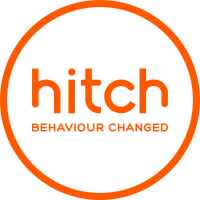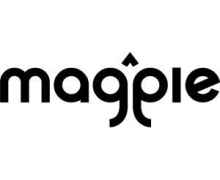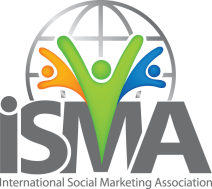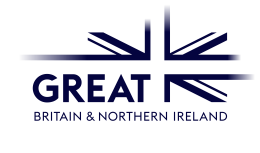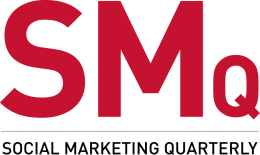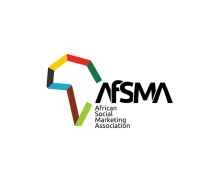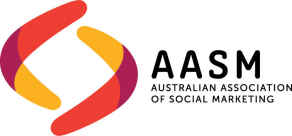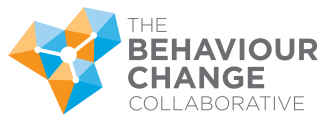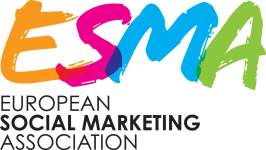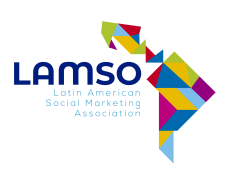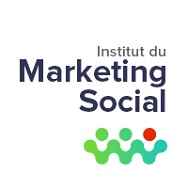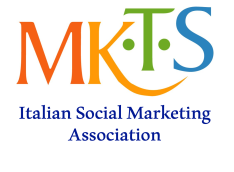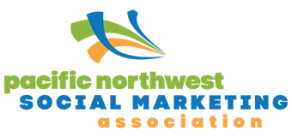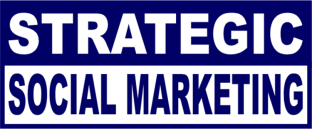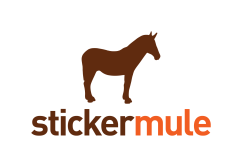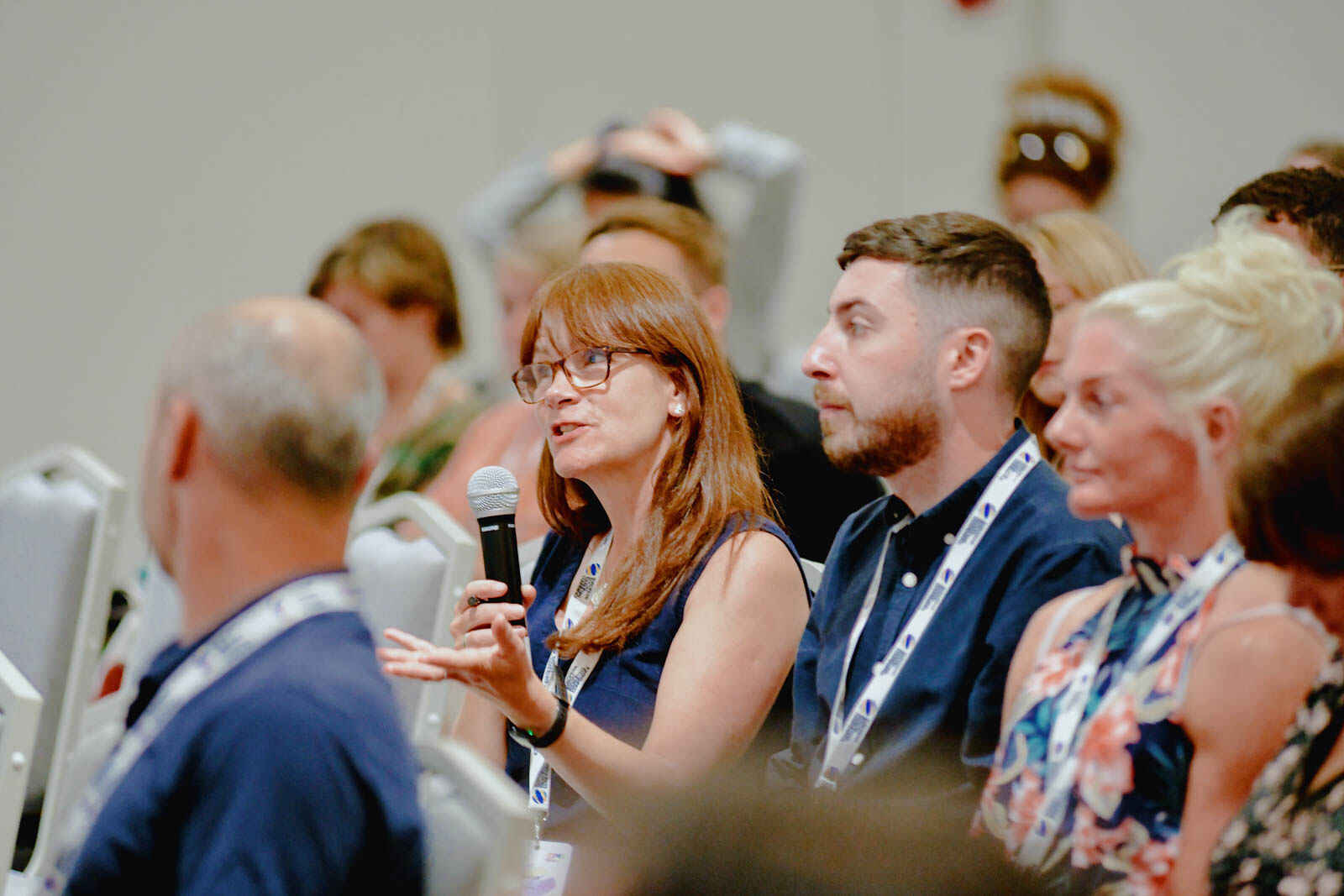
An event to bring together anyone working to encourage and enable positive health, social and environmental change.
PROGRAMME
MONDAY 5 SEPTEMBER > PRE-CONFERENCE WORKSHOPS
Conference attendees have the opportunity to take part in a range of training workshops ahead of the event lead by social marketing experts. These sessions are exclusivley available to conference attendees and can be selected during your registration.
Presentation Skills
Half Day Workshop - 9.30 - 12.30
Workshop leader: Prof Jeff French
This session will provide a masterclass of tips and advice designed to help anyone who is new to presenting research or case studies. This workshop will provide a great opportunity for anyone who is new to giving public presentations or anyone who is looking to improve their personal presentation skills at conferences or in the workplace.
Key Concepts of Social Marketing
Half Day Workshop - 1.00 - 5.00 PM
Workshop Leader: Sarah Cork, University of Brighton & Brilliant Futures
This session will give you a practical overview and clear translation of the main principles of Social Marketing. You might know about Social marketing, but feel the need of a bit more thorough explanation and good examples from the actual practice of Social Marketers. Giving yourself a good basis to benefit from all the coming lectures, presentations and workshops at the conference itself.
Social Media for Behavior Change
Half Day Workshop - 1.00 - 5.00 PM
Workshop leader: Nedra Kline Weinreich
Based on the Social Media for Behavior Change (SM4BC) Toolkit, created by Nedra for the International Federation of Red Cross/Red Crescent Societies, this interactive workshop will teach you the step-by-step process of building your strategy, designing your social media communications, and engaging with your online community in a way that makes behavior change more likely. Nedra Kline Weinreich, the president and founder of Weinreich Communications, is widely recognized as an expert in the field of social marketing.
Shining a light into the black box of social marketing planning, management and evaluation
Half Day Workshop - 1.00 - 5.00 PM
Workshop Leaders: Dr Joy Parkinson & Prof Jeff French
The aim of this interactive workshop is to provide those attending with an opportunity to explore a range of social marketing planning models and evaluation approaches, and how they can be applied and managed to ensure maximum chance of intervention success, quality and efficiency (even on a shoestring budget).
MONDAY 5 SEPTEMBER > WELCOME RECEPTION
All conference delegates are invited to attend the conference welcome reception which will take place in the main conference networking and poster display area. Come down and enjoy the complimentary evening of networking and refreshemtns, guests will also be invited to collect their programme and delegate badge early to miss the morning rush the following day.
Drinks and Canapes will be served for all guests from 5.30 to 7.30 PM.
TUESDAY 6 SEPTEMBER > CONFERENCE DAY ONE
MORNING SESSIONS
8.00 - 9.00 - Registration and Morning Coffee
9.00 - 10.00 > OPENING PLENARY
WELCOME to the 7th World Social Marketing Conference & Keynotes
Session Chair: Jeff French, iSMA President
Welcome from Brighton
Sarah Cork, University of Brighton
The New Encyclopaedia of Social Marketing
Chahid Fourali, London Metropolitan University
Keynote Speaker
Jeffrey Jordan - President and Founder, Rescue
"Introducing the Intentional Equity Framework: How to Design Equitable Social Marketing Campaigns"
Nearly every public health communications campaign includes health equity as an objective. But marketing channels are fundamentally inequitable, and campaigns that are not intentionally equitable end up being unintentionally inequitable. Health communicators must approach marketing channels with an understanding of their inherent biases and implement strategies to overcome those biases to design and implement truly equitable health communications campaigns.
10.00 - 10.45 > POSTER PRESENTATIONS & NETWORKING
We will be encouraging all delegates to take this time to speak to poster authors about their work and vote for the best poster project at WSMC.
10.45 - 12.45 > MORNING BREAKOUT SESSIONS
During this breakout session we will host six parallel rooms of exciting conference sessions. Continue reading this page to find out more about the full range of accepted work as this continues to be updated as and when authors confirm their attendance.
This breakout will also include special sessions
Social Marketing & SBC: Coming Together for Good
Chair: Lynda Bardfield, Chief Creative Officer, Creative Conscience; Adjunct Professor, Tufts University School of Medicine, USA
Panellists:
- Marcia Griffiths, President, Manoff Group (prerecorded)
- Gael O’Sullivan, Director, Social and Behavior Change, International Development Practice, Kantar Public/Professor Georgetown University
- Dr. Mahmooda Khaliq Pasha, Associate Professor of Social Marketing, University of South Florida
- Brittany Thurston, Executive Design Manager, ThinkPlace London
- Dr. W. Doug Evans, Professor George Washington University
Aim: Reflecting our conference theme ‘TACKLING GRAND CHALLENGES: TOGETHER FOR IMPACT’ this session aims to bring together Social Marketing and SBC professionals at the World Social Marketing Conference by inviting speakers with a foot in one or both worlds. We will look at how marketing (branding/positioning) has driven a divide between us, explore our commonalities, and discuss how to better collaborate and become partners globally.
"The 2022 iSMA Social Marketing Standards Setting Process: Final steps”
Facilitators: Sharyn Rundle-Thiele & Anna Kitunen
Aim: The aim of this interactive workshop will be to look at how we have unpacked Social Marketing. Over the past 6 months we have been working on iSMA standards. To do this we have unpacked key functions, knowledge and skills in our profession. In this session we will take a look at:
- What does a Social Marketer do?
- What are the elements of effective Social Marketing practice?
- What are the types of training Social Marketers might need?
The Social Marketing Standards will provide a framework which makes clear the knowledge, practice, and skills required to be a Social Marketer."
Ethics Panel and consultation on the launch of the iSMA Ethics Code of Social Marketing Practice
Facilitators: Krzysztof Kubacki; Jeff French
Aim: This session will review and explore the development of the iSMA and affiliated associations code of ethical practice for social marketing. The session will introduce participants to the six core ethical principles of the code and the process of development so far. The session will also act as the launch of a three-month consultation process on the draft code. Participant sat the event will have an opportunity to explore the principles set out in the code with the panel and suggest developments and refinements.
AFTERNOON SESSIONS
1.30 - 2.30 > AFTERNOON PLENARY
Chair - Sarah Cork, University of Brighton
50 Years of Social Marketing | Seeding solutions for the future
Sharyn Rundle-Thiele & Julia Carins, Griffith University, Australia
KEYNOTES IN CONVERSATION
Sustainable Tourism | Changing Mindsets
This inspiring conversation between Marina, Judy and Sarah will place tourism, travel and environmental concerns in a behaviour change context. Like many sectors sustainable tourism is now adopting many whole systems approaches, embracing behaviour change and social change programmes to make real sustainable change at scale in many of the worlds developing nations.
Judy Kepher-Gona, Founder & Principal Consultant, Sustainable Travel & Tourism Agenda - STTA, Kenya
Marina Novelli, Professor of Tourism and International Development, University of Brighton
2.45 - 4.30 > AFTERNOON BREAKOUT SESSIONS
During this breakout session we will host six parallel rooms of exciting conference sessions. Continue reading this page to find out more about the full range of accepted work as this continues to be updated as and when authors confirm their attendance.
This breakout will also include the special session
Social Marketing in Dialogue: What Other Disciplines Can Social Marketing Learn from and How?
Chair: Darcy Sawatzki, EVP, Head of Public Health, Evoke Kyne
Panel: Iman Shervington, filmmaker, and Director of Media & Communications, Institute of Women and Ethnic Minorities; Prof Sayantan Ghosal, Adam Smith Chair in Political Economy, University of Glasgow; Prof Thomas Anker, philosopher and Chair in Social Marketing, University of Dundee School of Business
Overview: This session explores how social marketers can learn from other disciplines to achieve greater social impact.
The chair challenges each of the panellists – a filmmaker, a philosopher and a political economist who are all working with pro-social behaviour change – to reflect on how they would tackle a contemporary issue in social marketing.
To create a dynamic debate, the chair will present each panellist with a challenge they have not prepared for, and the audience will participate actively in the conversation, sharing their experience with working across disciplines and professionalisms to create social change.
5.00 - 5.30 > END OF DAY PLENARY
Together Panel
Session Chair: Professor Thomas Anker
Aim: Join us for the end of day plenary where our panel of speakers and committee members will host a fun and interactive feedback and reflections session. The audience will be encouraged to participate, give their views and reflections on the first day of the conference.
WEDNESDAY 7 SEPTEMBER > CONFERENCE DAY TWO
MORNING SESSIONS
9.00 - 10.00 > MORNING PLENARY
REVELATIONS: A WAKE-UP CALL
Leaning on our theme of ‘TACKLING GRAND CHALLENGES: TOGETHER FOR IMPACT’ this session aims to inspire everyone at the World Social Marketing Conference by inviting speakers to share revelations and moments of inspiration. With grand challenges all around us we hope to provide insights, lessons learned and new ideas to our fellow behaviour change professionals. Session speakers include;
- John Drummond, self identifies as ‘a utopian pragmatist’
Actual title: Chair, Corporate Culture; REVELATION: Humans share common motives. If we can identify them, we can tackle some of our most challenging problems. - Gael O’Sullivan, self identifies as a stubborn (passionate), redheaded, Irish woman
Actual title: Director Social and Behavior Change, Kantar Public/Professor Georgetown; REVELATION: Don’t assume that you know the problem or solution. (TITLE: A Story about elephants & mosquitoes) - Doug Evans, self-identifies as a recovering psychologist
Actual title: Dr. William Douglas Evans, Professor George Washington University; REVELATION: Good branding works better - Mahmooda Pasha, self identifies as an academic rebel
Actual title: Dr. Pasha, Associate Professor of Social Marketing, University of South Florida; REVELATION: Information can change behavior. - Cal Bruns, self-identifies as an ad world refugee and senior surfer who’s passionate about empathy
Actual title:CEO, Chief Creative Incubationist, Matchboxology; REVELATION: Humility pays.
10.15 - 11.30 > MORNING BREAKOUT SESSIONS
During this breakout session we will host six parallel rooms of exciting conference sessions. Continue reading this page to find out more about the full range of accepted work as this continues to be updated as and when authors confirm their attendance.
This breakout will also include two special sessions
New insights into motivation theory and practice
Presenter: John Drummond, Chairman, Corporate Culture
Aim: What motivates humans to act? There’s been a great deal of attention to our biases over the last 15 years. We even have a cognitive bias codex identifying over 190 biases. There is no similar analysis of the main motivators that persuade people to act. Over the last few years I’ve identified over 50 motivators that are commonly used to motivate behaviour change. They seem to group into nine nexus around areas like meaning, identity, social connection and power. In this session, we’ll explore progress to date in a draft new report on motivation theory and practice including an outline motivational codex, example profiles of each motivator, emerging nexuses and how to prioritise motivators to accelerate changes to specific behaviours.
Social Marketing (SM) Education: Challenges & Solutions
Chair: Debbie Ellis, University of KwaZulu-Natal, South Africa
Panel members: Liz Foote; Fiona Spotswood; Livingston White; Gael O’Sullivan
Overview: With the growing number of grand challenges faced by the world and the need to entrench SM principles and practices into communities to deal with these, the need for effective SM education increases. While some countries offer numerous general and specific options to SM students and practitioners, in other regions, there is far less to choose from. This panel aims to discuss the extent of SM education, its ‘place’ in educational programmes and some reflections on content and pedagogy challenges and solutions from both academic and practitioner perspectives.
11.30 - 12.30 > MID-MORNING PLENARY
THE GENERATION GAP
Chair – Joy Parkinson
Panel members: Jeff French, Lynda Bardfield, Livingston White, Lina Khattab, Muniza Shaikh-Kamal, Stelina Kanaki
We invite all attendees to join what will be an entertaining and engaging plenary session where we invite two generations of behaviour change professionals to share their experiences and discuss the future of creating positive social change. Is there something you wish you'd known when you began your behaviour change journey? Is there something you'd love to ask a seasoned professional who's seen it all before? What challenges face the new generation and do the old guard even understand the feelings of those coming into the field? This session aims to answer it all and more!
AFTERNOON SESSIONS
1.30 - 2.30 > AFTERNOON PLENARY
KEYNOTE SPEAKERS
Empowerment and Poverty Traps
Prof. Sayantan Ghosal, Adam Smith Business School, University of Glasgow
Sayantan will be bring a new perspective to social change through economics and will present his inspiring and pioneering work in Kolkata addressing inequalities, stigma and self-image of sex workers.
Citizen-centred communication - building effective campaigns that tackle disinformation, build trust in HMG messaging and trigger behaviour change
Catherine Hunt, Head of Insight and Evaluation, Cabinet Office
Drawing on our experiences on Covid-19 (specifically vaccines) and the current Russia-Ukraine conflict as well as the principles that underpin trustworthy communication, we'll show how we've been able to build an effective HMG response to previous public health crises and the lessons that we will be taking forwards to tackle emerging domestic challenges arising from the conflict.
2.45 - 4.30 > AFTERNOON BREAKOUT SESSIONS
During this breakout session we will host six parallel rooms of exciting conference sessions.
4.30 - 5.15 > CLOSING PLENARY & BEST PAPER PRESENTATIONS
Session Chair: Prof Jeff French, iSMA President
Join the conference organising committee, speakers and other participants and they host an open discussion and feedback session for sum-up the event. Put your views forward for the next event, share what you've learned or what opportunities have been missed.
This session will also play host the conference award presentations where the best submissions from each conference category will be celebrated.
CONFIRMED POSTERS
Poster Number 1
Submission No. 11
Title: Case Study of an Innovative Social Marketing Programme to Prevent Tobacco Use Among Adolescent Girls
Authors: Alice Railton, Good Business, UK; Sarah Howden, Good Business, UK; Elle Brooks, The Dialogue Group, Botswana; Gaone Manatong, The Dialogue Group, Botswana
SKY Girls is a pan-African social marketing campaign for adolescent girls focused on tobacco prevention, funded by the Bill & Melinda Gates Foundation. Girls interact with SKY through a range of traditional and digital channels. Each channel uses co-creation and user-generated content to amplify girls own voices and choices and highlights how girls and role models say no to smoking.
Track: Reducing the impact of addiction
Poster Number 2
Submission No. 16
Title: Give your old clothes a new life “Vieni al punto! (Di raccolta)”
Authors: Rebecca Beraducci, University of Bologna, Italy; Nadia Fois, University of Bologna, Italy; Miriam Rossello, University of Bologna, Italy; Sara Scandarola, University of Bologna, Italy; Ilaria Torchio, University of Bologna, Italy; Giuseppe Fattori, University of Bologna, Italy
Our project aims at encouraging people to donate all those clothes still in good condition that they no longer use, in order to fight fast fashion and take action to defend our planet. We worked together with “And Circular”, who helped us organize our project at the shopping mall Centroborgo.
Track: Climate change, environment protection, sustainability
Poster Number 3
Submission No. 17
Title: Community Based Social Marketing. Promoting blood donation among young people: “Il rosso si dona”
Authors: Maria Bandini, University of Bologna, Italy; Marco Brini, University of Bologna, Italy; Giuseppina La Vecchia, University of Bologna, Italy; Simona Ottardi, University of Bologna, Italy; Margherita Palombo, University of Bologna, Italy; Margherita Pirazzini, University of Bologna, Italy; Riccardo Turco, University of Bologna, Italy; Giuseppe Fattori, University of Bologna, Italy
The aim of our project is to counteract the decrease in blood donation among the younger population groups, motivating them to become new donors. Therefore, our target comprehends young people between 18 and 30 years old who have never donated blood in their life, leading them to consider blood donation as an investment for community health.
Track: Promoting global and local health
Poster Number 4
Submission No. 25
Title: Relationship between mutual spillover effects and consumer involvement through sponsorship of the arts
Authors: Yasushi Sonobe, Toyo University, Japan; Makiko Kawakita, Nanzan University, Japan
This study examines the consumer psychological benefits that sponsorships with social good bring to companies and support targets. The purpose of this study is to understand the relationship between the mutual spillover effects and consumer involvement through sponsorship of the arts. We propose a model in which consumers’ perceived prestige of a brand and an art organization positively influence attitudes, adding that consumers’ involvement moderates these effects.
Track: Using citizen focused design thinking
Poster Number 5
Submission No. 40
Title: Sexual Health Insight Gathering Amongst Three Target Audiences in East Sussex
Authors: Megan Christie, Social Marketing Gateway, UK; Matt Howick, Social Marketing Gateway, UK; Sarah Muir, Social Marketing Gateway, UK
Research into the sexual health needs of three targeted groups in East Sussex to inform the development of local services and communications. The three targeted groups were men and women aged 45 years or older, young women who had conceived under the age of 18, and men who have sex with men. Findings identified key barriers, challenges, and points of intervention.
Track: Promoting global and local health
Poster Number 6
Submission No. 42
Title: Results of a survey on the current state of social marketing in Japan.
Authors: Prof. Yoko Uryuhara, Doshisha University, Japan
The purpose of this study was to understand the level of awareness and understanding of social marketing among Japanese people, and to use this information to develop future dissemination strategies.
A quantitative web-based survey of 2,500 Japanese people revealed that less than 20% were aware of social marketing and that their level of understanding was low (17% correct).
Track: Interdisciplinary and cross sector action
Poster Number 7
Submission No. 43
Title: Staff in Mind: A wellbeing hub for health and social care workers in Sussex
Authors: Megan Christie, Social Marketing Gateway, UK; Matt Howick, Social Marketing Gateway, UK; Sarah Muir, Social Marketing Gateway, UK
A multi-stage project developing an online resilience hub for health and social care staff, involving the development of the service offer, an engagement strategy, and the accompanying campaign. The service is now considered an exemplar in England, with over 4,000 staff having engaged since launch in January 2021, and over 2,000 staff being referred to support.
Track: Mental health and wellbeing
Poster Number 8
Submission No. 45
Title: Evaluation of public’s response to social marketing campaigns aimed at normalizing breastfeeding in public
Authors: Anuradha Somangurthi, Sheffield Hallam University, UK; Dr. Cecile Morris, Sheffield Hallam University, UK; Craig Hirst, Sheffield Hallam University, UK; Dr. Rachel Rundle, Sheffield Hallam University, UK; Amy M Furness, Sheffield Hallam University, UK
The study explores the response of members of the public to existing social marketing campaigns promoting breastfeeding in public with the view to understanding what ‘works’ and exploring emotional responses.
Track: Using citizen focused design thinking
Poster Number 9
Submission No. 54
Title: Validation of the creative concepts of the National Social Marketing Plan for the Reduction of the Consumption of Salt/Sodium in Costa Rica proposal
Authors: Adriana Blanco-Metzler,Costa Rican Institute of Research and Teaching in Nutrition and Health (INCIENSA), Costa Rica; Marco Castro-Araya, Ministry of Health of Costa Rica; Karol Madriz-Morales, Ministry of Health of Costa Rica; Hilda Nuñez-Rivas, Costa Rican Institute of Research and Teaching in Nutrition and Health (INCIENSA); Marlen Rosello-Araya, INCIENSA; Karla Benavides-Aguilar, INCIENSA-FundacionUCR-LINKS, Resolve to Save Lives; Ana Gabriela Leiva-Acuña, INCIENSA-FundacionUCR-LINKS, Resolve to Save Lives
This study is the continuation of a multicenter project where a proposal for a regional social marketing plan was developed to reduce discretionary salt consumption in Latin American countries. This plan was adapted to the reality and context of the Costa Rican population by contrasting and analyzing audience, communication goals, objectives, and creative concepts. A national creative strategy was designed.
Track: Promoting global and local health
Poster Number 10
Submission No. 58
Title: Do prospective checkers check out? - Influences on STI self-testing vs clinic testing.
Authors: Elizabeth Barnes, University of Stirling, UK.
When 18–34-year-olds consider STI health checks, does consideration of the different testing options (self-test at home or test at a clinic) and/or a reminder that the test is funded by the UK taxpayer (vs no reminder), impact their perceptions of value, compliance, and attitudes towards risky sexual behaviour?
This experiment will help inform communication strategies and allocation of scarce funding.
Track: Promoting global and local health
Poster Number 11
Submission No. 60
Title: Combatting Addiction in Future Generations: The Protect Our Youth Campaign
Authors: Tyler Klaassen, VI Marketing and Branding, United States
A marketing campaign, titled Protect Our Youth, aims to reduce tobacco and nicotine prevalence among youth and stop addiction before it begins in the lives of young people. This campaign delivers strategic messaging through digital and traditional tactics. The Protect Our Youth campaign comes from VI Marketing and Branding on behalf of Tobacco Stops With Me, a program of the Tobacco Settlement Endowment Trust in Oklahoma, United States.
Track: Advancing theory
Poster Number 12
Submission No. 61
Title: Healthy Habits Behavior Change Funnel
Authors: Tyler Klaassen, VI Marketing and Branding, United States
An audience behavior funnel outlines the unique ways a person navigates their journey towards healthier living. This funnel serves as a tool to drive messaging efforts, and helps behavior change professionals understand the different factors that influence someone looking to become healthier. This funnel was created by VI Marketing and Branding on behalf of Shape Your Future, a program of the Tobacco Settlement Endowment Trust in Oklahoma, United States.
Track: Reducing the impact of addiction
Poster Number 13
Submission No. 69
Title: Public health interventions to improve antimicrobial resistance awareness and behavioural change associated with antibiotic use: a systematic review exploring the use of social media
Authors: Sana Parveen, University College Dublin, Ireland; Nathaly Garzon-Orjuela, University College Dublin, Ireland; Doaa Amin, University College Dublin, Ireland; Dr Patricia McHugh, National University of Ireland, Galway, Ireland; Prof Akke Vellinga, University College Dublin, Ireland
Our research is focused on understanding how social media is being used in public health interventions and what is the best way to use social media as an effective tool to raise awareness about infections particularly on AMR. An important aspect of this research is to find out ways to influence public behaviour through social media.
Track: Promoting global and local health
Poster Number 14
Submission No. 70
Title: Reducing ivory demand: is the current intervention landscape likely to protect African elephants?
Authors: Molly Brown, University of York, UK; Prof. Victoria Wells, University of York, UK; Dr Colin Beale, University of York, UK
This poster presents a methodological approach for an interdisciplinary PhD study investigating the ivory demand intervention landscape in China and Southeast Asia. The study will use a rubric of social marketing evaluative frameworks, credible success indicators and ivory-specific consumer research to assess the potential effectiveness of each intervention and their management organisation across time and space in terms of the success likelihood of reducing ivory demand.
Track: Climate change, environment protection, sustainability
Poster Number 15
Submission No. 72
Title: Understanding (intentional/unintentional) binge drinking at home among Irish adults
Authors: Dr Ann Stokes, Research Manager, Drinkaware, Ireland; Sheena Horgan, CEO, Drinkaware, Ireland
Pre-COVID-19 at-home drinking was on the rise, making up 62% of all drinking occasions (Drinkaware (Ireland) Index, 2019). Increases in binge drinking were also noted across different research. This study aimed to further investigate Drinkaware Index (2019) data regarding the incidences/attitudes around the concept, explore the at-home drinking experience and improve understanding of its drivers and any relevant knowledge gaps.
Track: COVID-19
Track: Promoting global and local health
Poster Number 16
Submission No. 74
Authors: Dr Ann Stokes, Research Manager, Drinkaware, Ireland
Alcohol misuse is an area of concern in Irish workplaces. Guided by a logic model the evidence-informed Workplace Wellness Programme (WWP) aims to reduce misuse by providing education/support to employees. The evaluation assessed and found the intervention to be effective in delivering its anticipated outcomes: increased awareness of what alcohol misuse is (i.e. low-risk guidelines); a willingness/intent to change behaviour.
Track: Promoting global and local health


